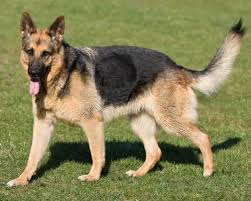How much kiwi Can I give my dog? A big dog might manage to eat a whole kiwi in chunks without a fuss. When deciding how much kiwi to feed your dog, always stick to the 10% rule. Although kiwis are natural and healthy snacks, it is still considered a treat.
Can dogs have kiwi seeds? Although kiwis are a safe snack for dogs, the skin and seeds can be toxic to your pet if eaten in large amounts. Kiwis have seeds that humans should remove before giving to a dog because they contain toxins when eaten in high doses. A dog’s digestive system doesn’t allow it to properly digest the skin on a kiwi.
What happens if my dog eats kiwi skin? Potential Health Concerns For Dogs Eating Kiwi
Although it is not toxic, kiwi skin is tough to chew and can possibly pose a choking risk for small dogs and if swallowed whole. It could also potentially block the digestive tract causing severe health issues.
What fruits can dogs not have?
What Fruits Are Not Good for Dogs?
- Avocado. This fruit contains persin, a toxin that makes dogs throw up and have diarrhea.
- Cherries. Cherry pits contain cyanide.
- Grapes. Grapes can cause sudden kidney failure in dogs.
- Tomatoes. The green parts of the tomato plant have solanine, which is toxic to dogs.
How much kiwi Can I give my dog? – Additional Questions
Can dogs have bananas?
Yes, dogs can eat bananas. In moderation, bananas are a great low-calorie treat for dogs. They’re high in potassium, vitamins, biotin, fiber, and copper. They are low in cholesterol and sodium, but because of their high sugar content, bananas should be given as a treat, not part of your dog’s main diet.
Is kiwi skin edible?
While the skin is perfectly edible and provides lots of fiber, folate and antioxidants, some people dislike its texture. There are many varieties of kiwi to choose from, including several with tender, fuzz-free skin, so you can experiment and find your favorite type.
What dogs shouldnt eat?
10 Foods Your Dog Should Never Eat
- Chocolate. Chocolate contains a very toxic substance called methylxanthines, which are stimulants that can stop a dog’s metabolic process.
- Avocados.
- Onions and Garlic.
- Grapes and Raisins.
- Milk and other Dairy Products.
- Macadamia Nuts.
- Sugary foods and drinks.
- Caffeine.
What fruit is good for puppies?
For most dogs, yes, fruits fit the bill. Certain fruits, like bananas, apples, strawberries, and blueberries can provide dogs with some healthy variety to their diet and work as a feel-good treat. Unlike many processed treats, fruits come with benefits.
Can French bulldogs eat kiwi?
Frenchies can eat kiwi fruit, but it’s far more hassle than it’s actually worth. It can cause stomach upsets and you will need to completely remove the skin and seeds due to the choking hazard and toxic nature. If you are determined to feed your Frenchie kiwi, only feed them the flesh with no seeds in.
Is pineapple good for dogs?
Is It Safe for Dogs to Eat Pineapple? Yes. Raw pineapple, in small amounts, is an excellent snack for dogs.
Can dogs have avocado?
In large amounts, it can cause vomiting, diarrhea, and myocardial damage. Avocado flesh’s high fat content can lead to gastrointestinal upset and pancreatitis in dogs if they eat too much, and because it’s calorie-dense, it can also lead to weight gain.
Can dogs have strawberries?
It may be hard or confusing to figure out which fruits and vegetables are safe for your dog (here’s a hint: grapes are definitely not safe), but yes, your best friend can have fresh strawberries. However, you should not feed your dog canned strawberries or strawberries in syrup. These are not good for your pet, at all.
Can dogs eat cucumbers?
Are Cucumbers Safe for Dogs? Cucumbers are perfectly safe for dogs to eat, and offer a low-calorie, crunchy snack that many dogs love. Cucumbers only contain about 8 calories per one-half cup of slices, compared to the 40 calories in a single medium biscuit, and are very low in sodium and fat.
Can dogs eat potatoes?
White potatoes belong to the nightshade family of vegetables, which includes tomatoes; like tomatoes, raw potatoes contain solanine, a compound that is toxic to some dogs. However, cooking a potato reduces the levels of solanine. If you do feed your dog a potato, it should be baked or boiled, with nothing added to it.
Can dogs eat popcorn?
Plain, air-popped popcorn is safe for dogs to eat in small quantities. Buttered popcorn or popcorn with other toppings is not safe for your dog on a regular basis, although eating a few dropped pieces here and there probably won’t hurt him.
Can dogs eat pizza?
The bottom line is that you should never give pizza to your dog, whether as a meal or a treat. They might experience a slight stomach upset if they’re sensitive to dairy, due to the excess fat, but overall in many cases dogs are fine.
Can dogs eat potato chips?
It’s not a good idea to share salty foods like chips or pretzels with your dog. Eating too much salt can make your dog seriously thirsty. That means a lot of trips to the fire hydrant and it could lead to sodium ion poisoning.
Can dogs eat ice cream?
Dogs Don’t Digest Milk Well
Eating ice cream may cause your dog a stomach ache or worse, depending on how sensitive they are. Ice cream can cause your dog gas, bloating, constipation, diarrhea or vomiting.
Can dogs eat french fries?
French fries are high in salt, fat, and carbs, which can lead to canine weight gain. Restaurant or fast food fries can be hazardous to dogs because of their exceptionally high salt content. Additionally, restaurant-prepared fries often contain seasonings harmful to dogs, like garlic or onion powder.
Can dogs eat canned tuna?
Is canned tuna good for dogs? Yes, you can feed your dog canned tuna, as long as you do so in moderation and only infrequently, and you choose the version that’s packed in fresh water instead of oil or salted water. It’s also important to check the label and make sure there is no extra salt added to the canned tuna.
Will Doritos hurt a dog?
Doritos are not made for pets and should not be given to your dog regularly. Dogs have a shorter digestive tract that does not allow them to break down dyes, artificial flavors, or preservatives like humans do. This can lead to problems such as diarrhea, vomiting, loss of appetite, and even seizures.




